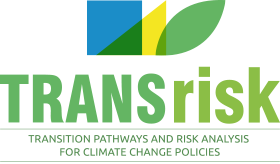Report from the bioenergy workshop series in Bali with in total 62 participants who attended the event. Among them, 18 were students, 15 were local and national representatives of the government, 14 were researchers, 10 were from private sectors, and 5 were farmers.
Blog by Elena Delanne, intern, su-re.coffee
The workshop took place from the 8th until the 11th of April, in several locations around Bali. Guests were first invited to attend a two-day Field Visit in Jembrana, West Bali from April 8th to 9th. The remainder of the workshop took place from April 10th to 11th in Udayana University, Denpasar and at the Grand Balisani Suites, Seminyak.

The 3rd International Bioenergy and Electrification Workshop on Sustainability and Resilience of Bioenergy for Climate Change is the last of a series of annual bio-energy workshops, that took place from 2016 to 2018. These workshops are a joint initiative of the Ministry of National Development Planning of Indonesia (Bappenas), Indonesian Agency for Meteorology, Climatology, and Geophysics (BMKG), Udayana University, Stockholm Environment Institute (SEI), and the European Commission (EC) Horizon2020 projects: GreenWIN and TRANSrisk, and su-re.co. These workshops are aimed to accelerate bioenergy development and promote climate change mitigation and adaptation pathways in Indonesia.
The main objective of this workshop was to shed further light on the opportunities of biogas and related climate smart agriculture in Indonesia, focusing on the associated risks and barriers linked to bioenergy, utilizing the information from preliminary sessions with Bappenas and models from the previous workshop.
Concrete pilot projects of value-adding activities from agricultural products derived from biogas use and BMKG’s Climate Field School were showcased during the two-day field trip. Finally, presentations and group exercises were facilitated to connect stakeholders, aiming to align the knowledge obtained by researchers with the knowledge required by policymakers.
Participants from diverse backgrounds gathered at the workshop. In total 62 participants attended the event. Among them, 18 were students, 15 were local and national representatives of the government, 14 were researchers, 10 were from private sectors, and 5 were farmers. A system of translated slides-shows and translators was implemented to allow all participants to communicate with each other.

International experts presented their work during the third day of the workshop. Panel discussions focusing on policy, technology development, state of implementation and financial matters were conducted after the presentations. Some of the topics discussed were:
- Importance of policy dialogue: connecting policymakers and researchers
- Bioeconomy, climate, and innovation with a focus on electrification and bioenergy
- Value creation of bio-slurry
- Integrated assessment modeling of opportunities and challenges resulting from the development of bioenergy
- Introduction of activities and funding opportunities
In the final day of the workshop, participants were asked to join group discussions about the forecasting of small-scale bio digester and large-scale electrification deployment in Bali. Afterward, they had the opportunity to discuss different green business models linked to products derived from biogas utilization. An emphasis was put on trying to solve the issues related to the lack of market opportunities for biogas and biogas byproducts.
This event allowed people from different backgrounds, concerns, and sectors to interact and exchange about the biogas development in Indonesia. During the field visit in Jembrana, participants witnessed the implementation of bio digester solutions as well as biogas usage (coffee roasting, puffer machine, etc.) at a coffee farm and a cacao farm, as well as the last meeting of Climate Field School.

An end product of biogas production and utilization, su-re.coco, was showcased in a local and organic company, Cau Chocolate Factory, where participants learned about chocolate production. They also attended a Climate Field School session where the main objective is to educate farmers on climate change.
A report about the sessions will be published on the su-re.co website. Inputs from the group discussions will also be used to implement a macroeconomic model and risks and uncertainties analyses. This model aims to predict which kind actions and policy should be implemented to facilitate the deployment of bioenergy in the future. Also, by acknowledging and exploring the risks of biogas deployment in Indonesia, it will help to reduce the implementing barriers and constraining factors.
TRANSrisk
Project details
- Project title: “Transitions Pathways and Risk Analysis for Climate Change Mitigation and Adaption Strategies” (TRANSrisk)
- Funding scheme: European Union Horizon 2020 Programme (EU H2020, grant agreement no. 642260)
- Duration: 3 years (1 September 2015 – 31 August 2018)
- Project coordinator: Science Policy Research Unit, University of Sussex, United Kingdom
- Project website: www.transrisk-project.eu



